SEAB Showcases Adaptive Testing Tools to Educators
Conducted in-person for the first time, an Assessment for Learning (AfL) sharing session was organised by the Research and Development Division for about 300 school leaders and educators from 96 primary schools on 11 July 2025. The event showcased three adaptive testing tools – MathsCheckPlus, CATalytics, and Read2LearnEL.
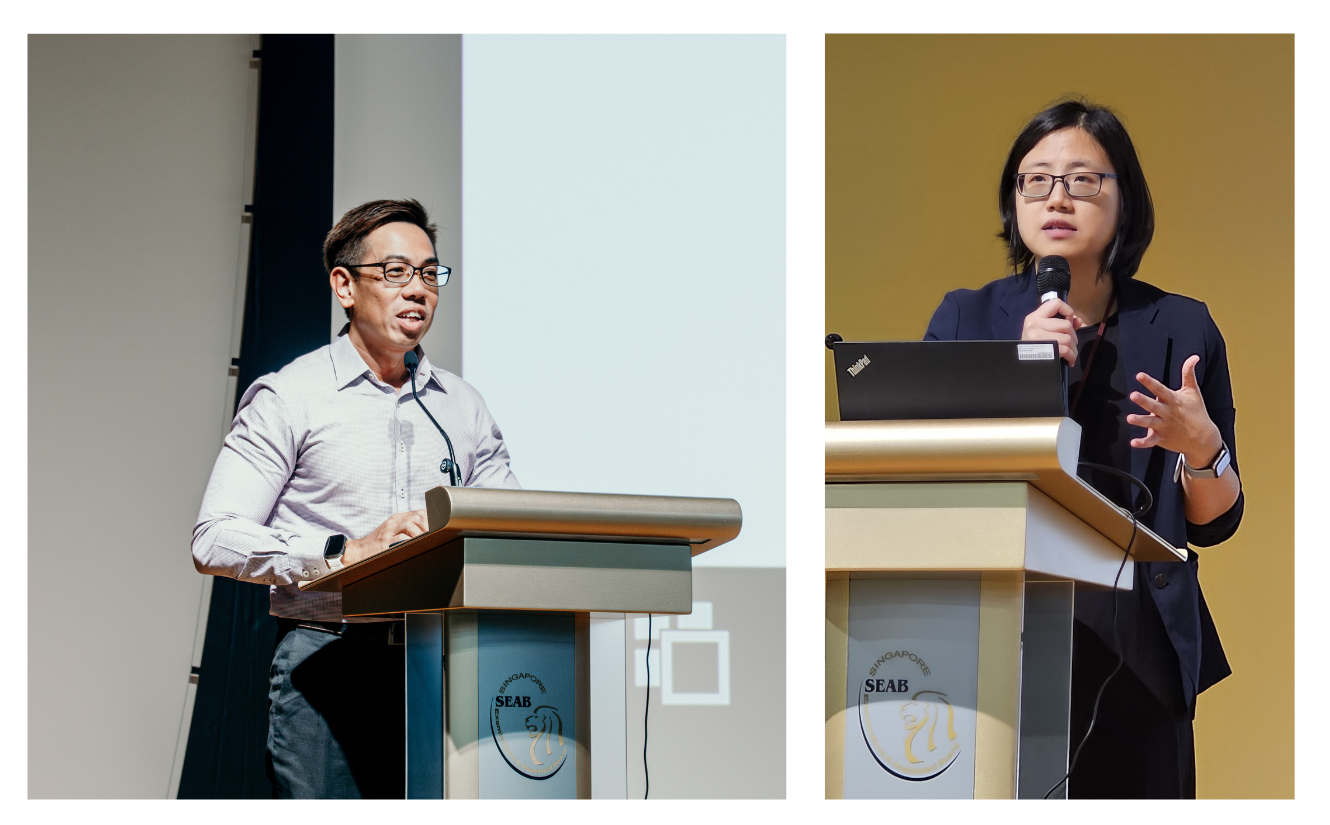
Left: Mr Kelvin Lim, Director of Research and Development Division opening the event
Right: Dr Koh Poh Wee delivering the keynote address on “Adaptive Testing: Where Learning, Assessment and Instructions Meet”
Mr Kelvin Lim, Director of Research and Development Division, opened the event by highlighting the importance of collaborative innovation in education and announced the launch of the new English Language adaptive testing tool developed by SEAB - Read2LearnEL. Plans are underway to integrate these Assessment for Learning (AfL) tools into the Student Learning Space (SLS), which provide teachers with a unified platform for all their assessment needs.
Dr Koh Poh Wee, Research Specialist and the event’s keynote speaker, demonstrated how adaptive testing serves as a crucial bridge connecting three educational pillars: learning science, assessment, and instruction. Her presentation revealed how adaptive testing dynamically adjusts to each student's level, creating productive challenges while providing immediate feedback, which helps teachers make data-driven decisions to support student learning effectively.
Participants then attended two parallel breakout sessions focusing on adaptive testing tools for Mathematics and English Language. The Mathematics breakout session opened with SEAB’s Lead Research Specialist, Ms Esther Yee's comprehensive overview of MathsCheckPlus and CATalytics, demonstrating how these digital assessment tools work complementarily.
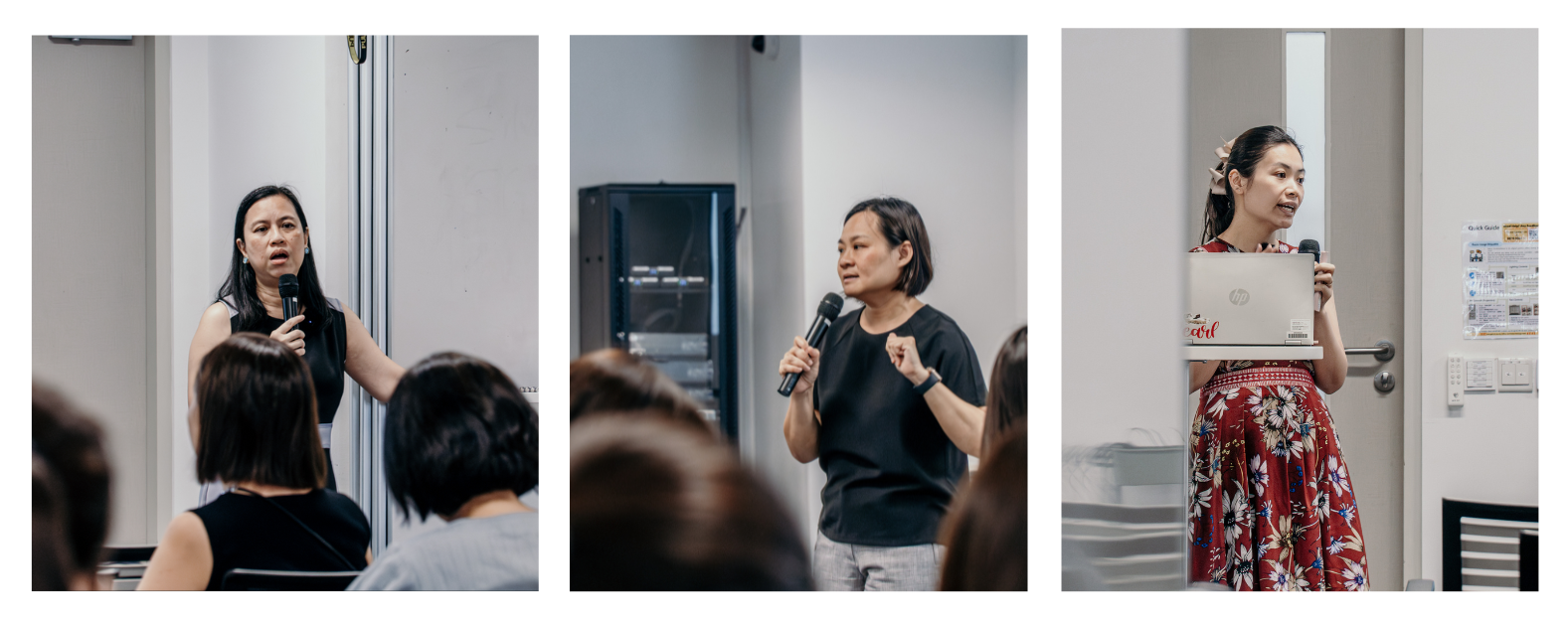
Left: Ms Esther Yee giving an example of how MathsCheckPlus and CATalytics can be used in tandem during the Mathematics breakout session
Middle: Dr Chang Suo Hui, delivering a presentation titled “Do students understand the problem?”
Right: Ms Pearl Chua shares Townsville Primary School's journey on using MathsCheckPlus report to make informed data-driven decisions through her presentation "Making Data-Informed Decisions for Teaching and Learning"
Dr Chang Suo Hui from Academy of Singapore Teachers (AST) then delved into the critical area of word problems, presenting a three-pronged approach to problem-solving. She explored the concept of “Understanding the Problem” from three perspectives – reading and recognition, comprehension and transformation, offering educators practical strategies to guide students through mathematical challenges.
Townsville Primary School's journey with MathsCheckPlus and CATalytics, as shared by Ms Pearl Chua, demonstrated the transformative power of data-driven decision-making in education. Through strategic use of the reports, their teachers shifted their instructional mindsets and learnt to make meaningful use of data. Their participation in the P2 MathsCheck Champion Support Group has further catalysed teacher growth, fostering both pedagogical excellence and professional development.
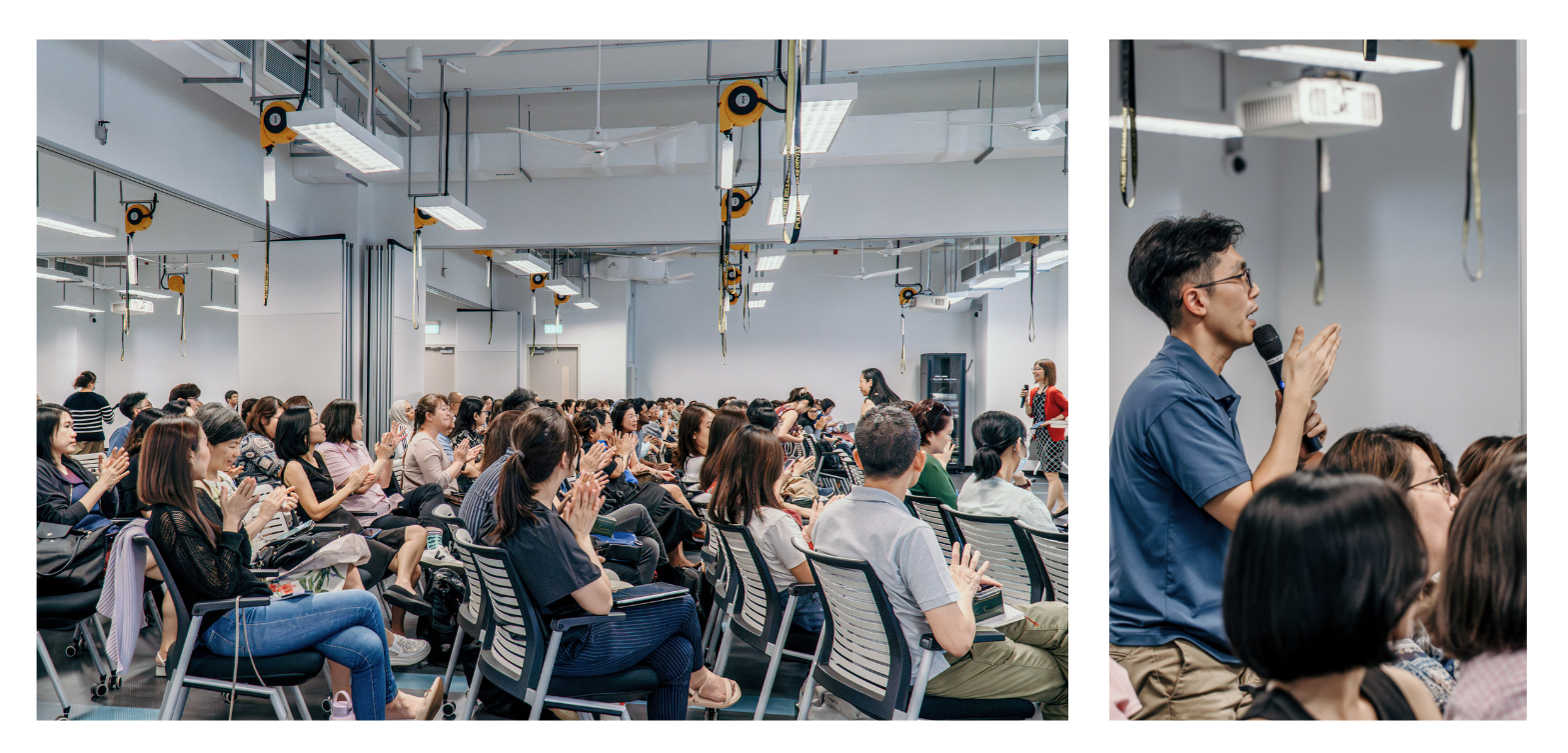
Active participation from educators during the Mathematics breakout session's Q&A.
The English breakout session began with Dr Elizabeth Pang from the Ministry of Education’s Curriculum Planning and Development Division giving an overview of the development of Read2LearnEL, an adaptive tool that measures students' individual reading capabilities and provides detailed performance data for teachers along with teaching suggestions that integrate with STELLAR materials to support targeted instruction. Dr Tay May Yin from English Language Institute of Singapore (ELIS) introduced the Read2LearnEL Networked Learning Community (NLC), highlighting its key objectives: supporting teachers through cross-school collaboration, deepening professional knowledge, and fostering teacher leadership. The NLC serves as a platform to build collective expertise while encouraging continuous professional learning among educators.
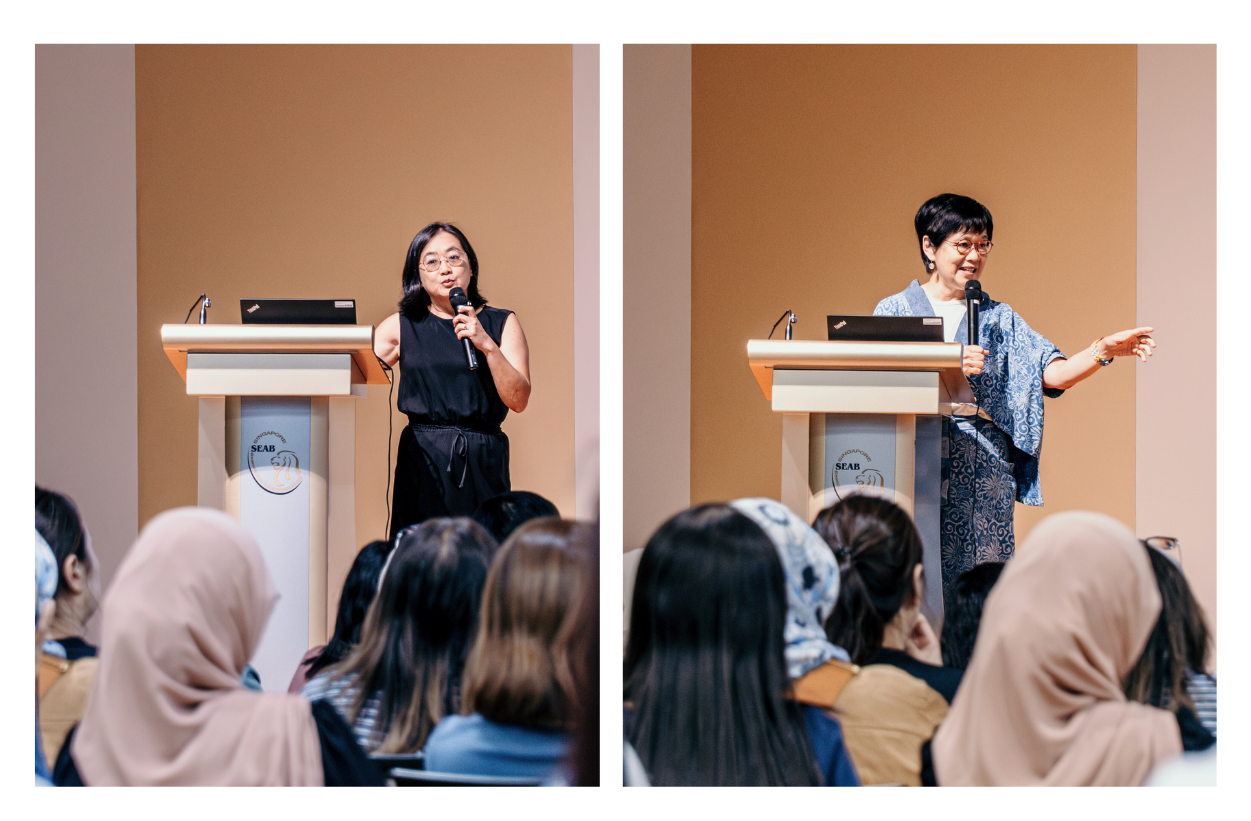
Left: Dr Elizabeth Pang delivering her presentation titled “Development of Read2LearnEL”
Right: Dr Tay May Yin presenting on Read2LearnEL NLC
Their presentations were followed by sharing from two primary schools. Mdm Annisa from Tanjong Katong Primary School explained their adoption of Read2LearnEL for its alignment with their assessment principles, citing its adaptive testing features, English Language Syllabus alignment, and comprehensive support system from master teachers through the NLC.
Mdm Chin Sau Lai and Mdm Malar from Princess Elizabeth Primary School further highlighted how Read2LearnEL’s NLC enhanced their teaching effectiveness through data-driven practices, peer learning, and improved instructional coaching.
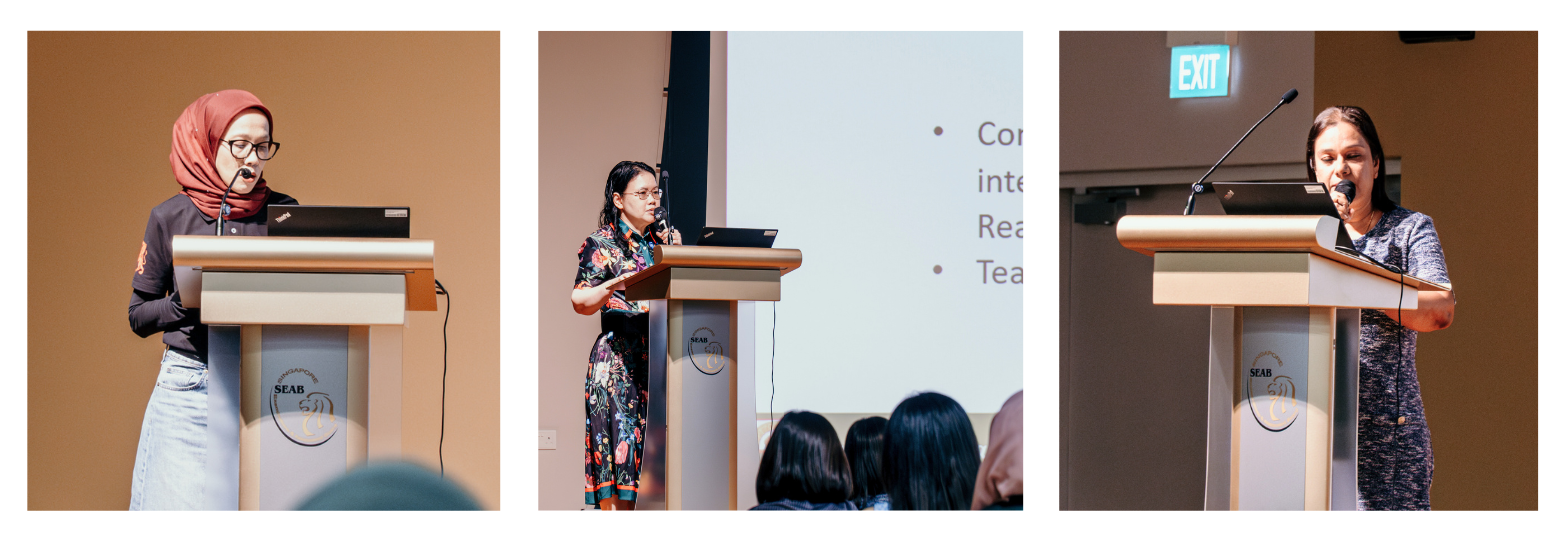
Left: Mdm Annisa from Tanjong Katong Primary School sharing on usage of “Read2LearnEL @ Tanjong Katong Primary”
Middle and Right: Mdm Chin Sau Lai and Mdm Malar from Princess Elizabeth Primary School presenting on “Closing the Comprehension Gap: Supporting Comprehension Teaching with Read2LearnEL”
Following the presentations, participants explored an interactive exhibition featuring Read2LearnEL. The hands-on showcase provided a unique opportunity for educators to experience the platform's features firsthand and engage in meaningful discussions with SEAB researchers who spearheaded its development.
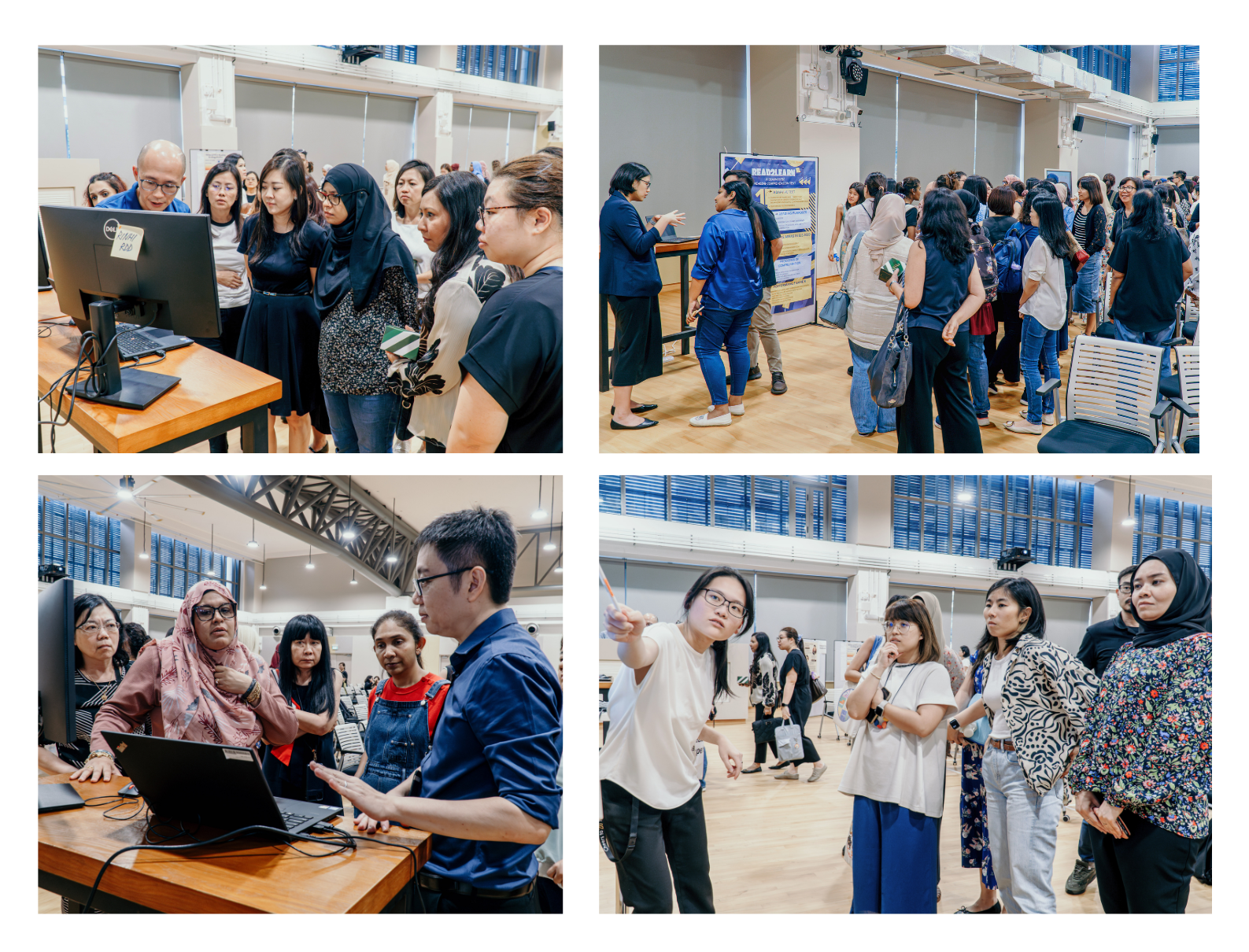
Participants eagerly seek clarifications from the Read2LearnEL team members as they explore some of the exhibits on showcase.
The 2025 Assessment for Learning Sharing Session concluded on a high note with enthusiastic participation during the Q&A session, demonstrating educators' deep commitment to assessment innovation. In essence, this milestone event marks another step forward in strengthening the partnership between schools and SEAB towards providing excellence in educational assessment.
MOE schools can register their students for free access to these diagnostic assessments, which are scheduled at specific times throughout the academic year: MathsCheckPlus takes place in October/November, while CATalytics and Read2LearnEL assessments are conducted between January to March.
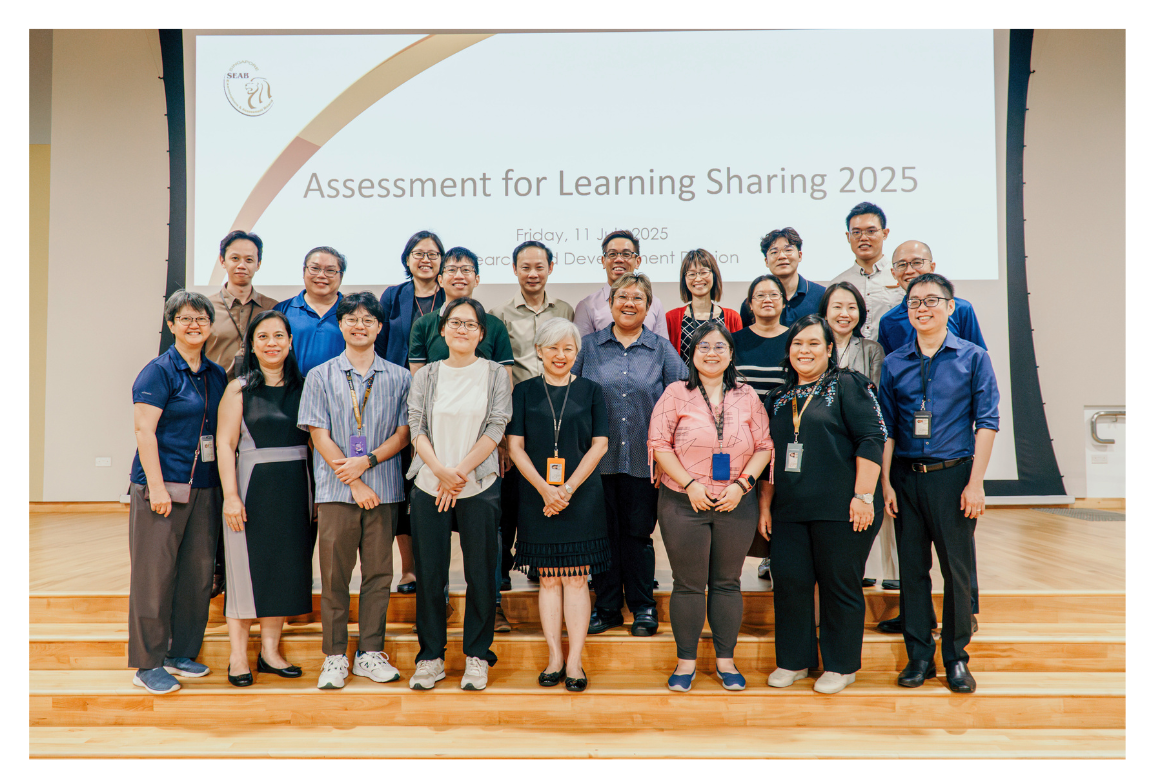
SEAB’s Research and Development Division team, organisers of Assessment for Learning Sharing 2025

